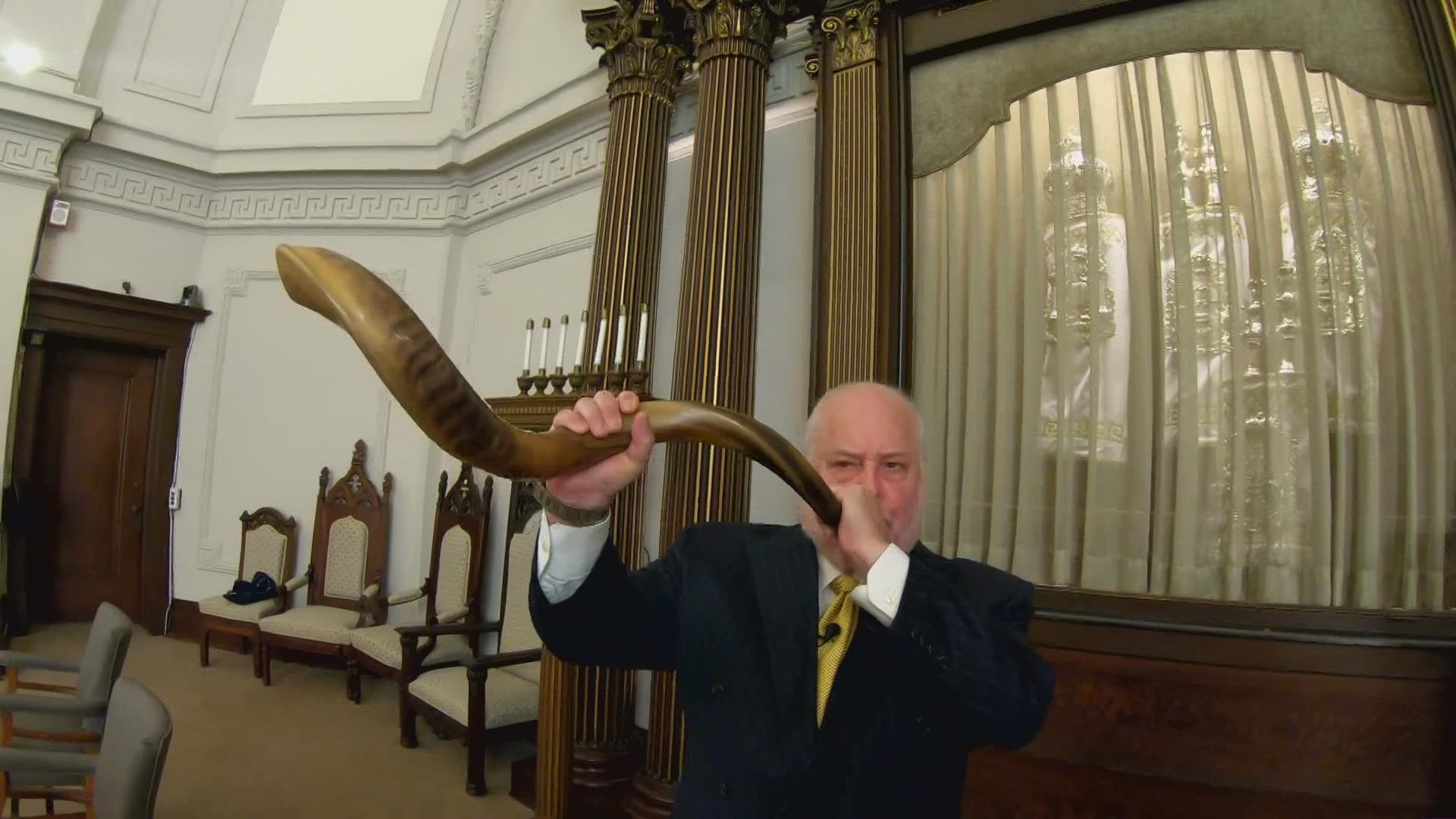NEW ORLEANS — The blowing of the shofar, the sacred ram’s horn marks the beginning of the Jewish High Holy Days.
“Rosh Hashanah” means “head of the year” in Hebrew.
The two-day holiday is considered a time of reflection in anticipation of the coming year.
Sunday evening’s service at Touro Synagogue in New Orleans was the first time since 2019, congregants celebrated the occasion together in person rather than remotely.
“This is a really special time of year for our community and to not have been able to gather “en masse” during these years has been a real loss as it has been for so many people for so many reasons, but this is our special time,” Touro Rabbi Katie Bauman said.
Rosh Hashanah kicks off 10 days of repentance between the launch of the new year and the day of atonement, Yom Kippur.
Bauman says we as a people have a lot to do to build the city, we all want.
“There is a lot of hurt. There’s a lot of poverty. There’s a lot of inequality. There’s a lot of fear and those are problems that we as humans created and so we as humans need to address them,” Bauman said.
David Bernstein is the Ba’al Tekiah, the person who blows the shofar on Rosh Hashanah and Yom Kippur.
“It’s an important experience,” Bernstein said. “It brings us all together and I just find a lot of fulfillment (from it).”
From his vantage point on the pulpit, he gets to look out onto the congregation, Bernstein added.
“Collectively observing traditions and retelling of stories and passing that on to the next generation and maintaining that continuity that’s kept us as a people through some very difficult times and very joyous times,” Bernstein said.
“This is a happy day for our community,” Bauman said. “We’re celebrating the gift of another year.”
People often eat apples and honey in celebration of Rosh Hashanah. It’s a way of wishing each other a good and sweet new year.
According to the Hebrew calendar, we are now entering year 5783. L’Shanah Tovah, Happy New Year New Orleans.

